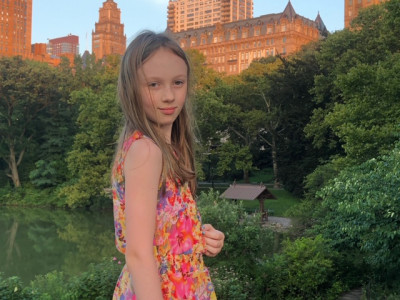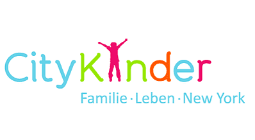After I recently got my US citizenship, my daughter said tongue-in-cheek “Mommy, we now have two Germans, two English and two Americans in our family.” What makes this statement funny is that our family only consists of three people: mom, dad and our 10-year-old daughter. So how did she work out the math? Easy! Her mom (me!) is German & American (read my commentary in the Spring issue), her dad is “only” English, and she is thus German, English and first and foremost American. Makes 2 of each...
Raising a multicultural and multilingual child is not very uncommon in an environment like New York City, but it is a very unique experience for me raising her that way. I grew up in a homogenous, almost purely German suburb of Munich, Bavaria. People from the North of Germany were jokingly considered “foreigners” and lovingly made fun of. We had a handful of guest workers from Turkey and Italy, but that was the extent of my multicultural exposure. My town has drastically changed since then. Since I moved to the US 20 years ago, our suburb has become quite popular with new immigrants and now welcomes over 32 different nationalities and languages.
Needless to say, my daughter has a very different experience growing up in a city like New York. She attends a dual language program in public school where she is taught 50% in Spanish (Why? Good question – it just happened). Now you may think that most of the children have Hispanic background, but the fact is that in addition to a few families where at least one parent is from Argentina, Mexico, Columbia or Spain, we have many international families with one or both parents from France, Sweden, Austria, Israel, Bulgaria, Korea and several other countries. About one third of the children speak a third language at home apart from English and Spanish. I believe the thought of people speaking one language only must be a bit strange for my daughter and her friends…
Of course, with all that language exposure also comes cultural immersion. Naturally, the school introduces her to a lot of Hispanic culture, songs, literature, and food. Through my work with HEIMAT abroad and my affiliations with many German (-American) organizations, as well as our summers in Germany, she grows up with lots of German influences as well. If you ask her, though, she feels 100% American.
I’m proud to say my daughter is growing up to be a true “citizen of the world”. She understands that people have different languages, cultures, religions, and political beliefs and still can live together peacefully. I still wonder, though, if we as her parents gave her deep enough roots. Will she ever feel that strong feeling of belonging I believe mostly smaller communities and close family ties can provide? If I go “home”, I still see the same people in my parents’ church, the same supermarket, the same neighbors. Although I love living in the US and I am proud to be an American now, I still know where my roots are and I know that this bond gives me the wings to fly. When my daughter comes “home” in 30 years, there will probably not even be a restaurant open that she recognizes. I’m convinced the Upper West Side of New York will have completely re-invented itself by then as New York always does. We, her parents, might not live there anymore. Thank God, there will (hopefully!) always be Central Park where we spend a lot of time in.
I’m not sure what’s better – deep roots and learning the ropes of the world later on or growing up in a multicultural environment equipped to face a globalized world head-on. The thing is – she will never know otherwise, as I will never fully understand what her experience as a so-called third-culture kid is like. Comparable with the fact that our kids will never understand what the world felt like without internet and cell phones. All we can do is give our best to instill enough values and give our kids all the tools to take full advantage of the great opportunity of growing up multicultural and multilingual.
As always, thank you readers, for following me on my journey.
Gabi Hegan






